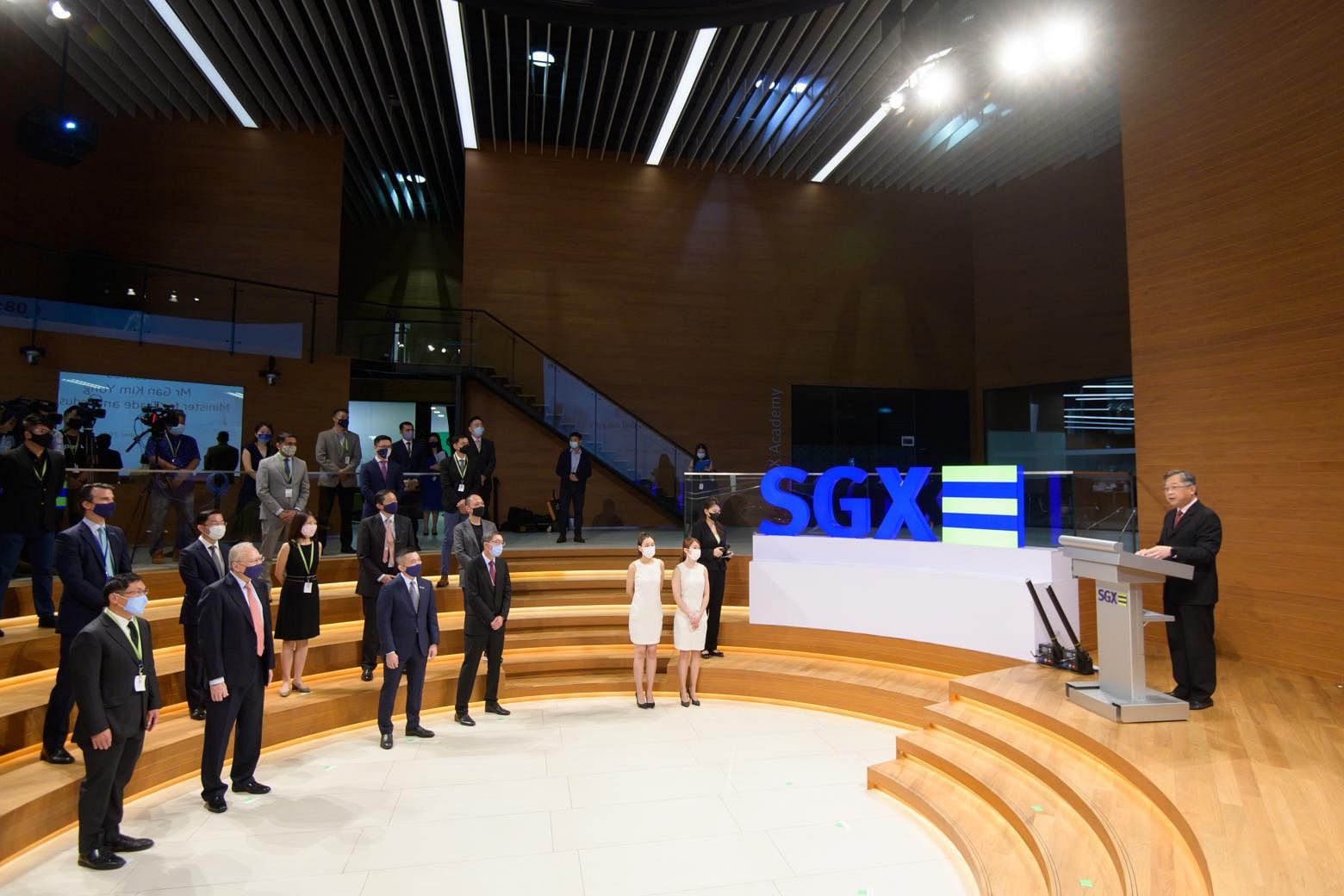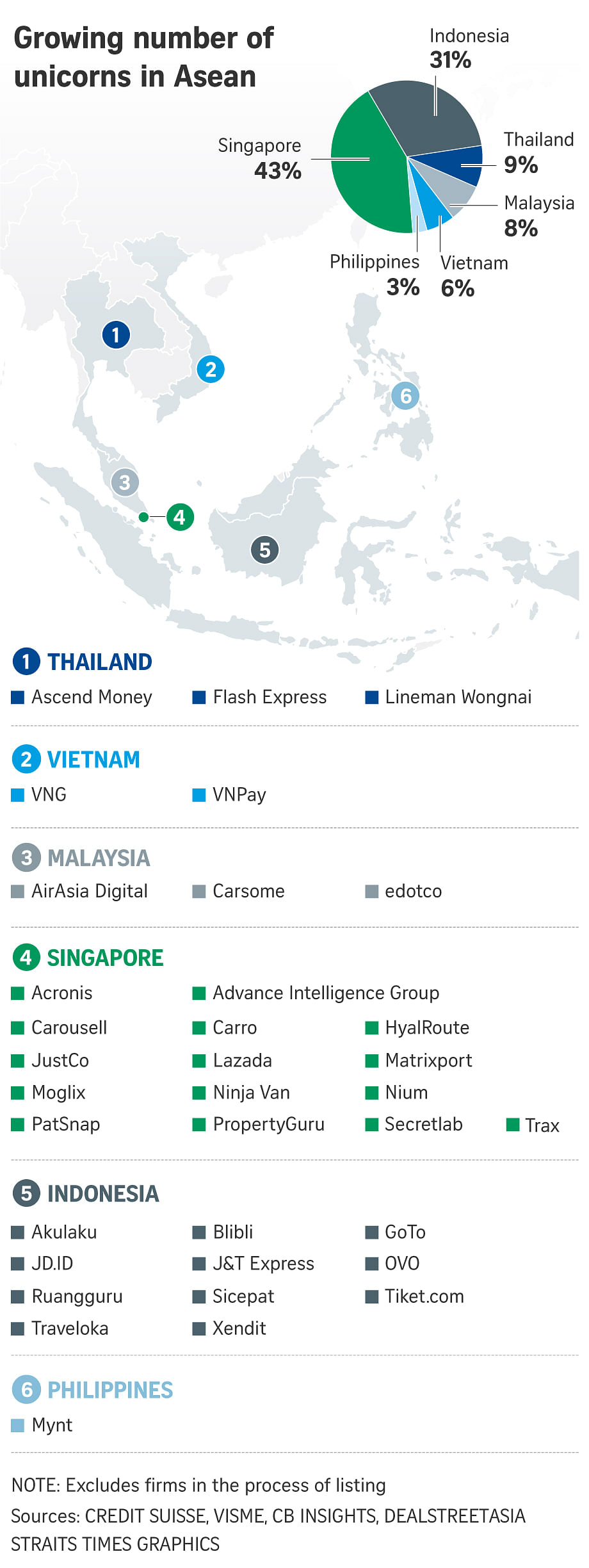Net profit (or rather, loss) margin was -33%. Lose 33 cents for every $1 earned.
Uber still losing billions every year.
Grab also losing money.
Amazon only became profitable after about a decade.
There is opportunity cost in investing in fintech start-ups and unicorns.
And also risks.
We hear only of the success stories, but not the 90% which failed.
Might as well buy blue chips, enjoy modest but steady capital gains and dividends.
Take profit 10 years later and then buy these fintechs (Sea, Uber, Grab) when they are established and profitable.
The total return may not be worse off than investing in these fintechs from the start.
That is, if you are lucky enough to be able to be among the initial investors.
Shopee parent Sea's sales double as Asian shoppers go online in pandemic

Revenue rose to US$1.6 billion (S$2.12 billion) in the last three months of 2020 from US$777.2 million a year earlier.PHOTO: SEA LIMITED
3 MAR 2021
SINGAPORE (BLOOMBERG) - Sea Ltd expects e-commerce revenue to double in 2021, sustaining its torrid pace of growth as South-east Asia's most valuable company counts on regional online shopping demand to persist after the pandemic.
Revenue rose to US$1.6 billion (S$2.12 billion) in the last three months of 2020 from US$777.2 million a year earlier, Singapore-based Sea said on Tuesday (March 2) in a statement.
Net loss widened to US$523.6 million from US$283.8 million, as fourth-quarter sales and marketing expenses climbed 95 per cent to US$665.2 million, led by digital financial services.
Sea, backed by Tencent Holdings, has emerged as a stock-market sensation since its initial public offering in New York in 2017, as investors bet the company can establish itself as a leader in e-commerce and gaming in South-east Asia. Among companies valued at US$100 billion or more, the stock is the No. 1 performer in Asia since the start of last year and only trails Tesla globally.
It's also trying to establish fintech as a third growth driver. Sea said on Tuesday it's acquired 100 per cent of Composite Capital Management, a Hong Kong-licensed global investment management firm. With the acquisition, the company is establishing Sea Capital, a platform to manage its overall investments.
The pandemic is helping to spur demand at Sea's e-commerce business Shopee, with fourth-quarter sales increasing 178 per cent to US$842.2 million. Sea forecast 2021 revenue at Shopee of US$4.5 billion to US$4.7 billion, up from US$2.2 billion in 2020.
Hit mobile game Free Fire is fueling growth at Sea's digital entertainment service Garena, whose sales last quarter rose 71.6 per cent to US$693.4 million. Sea forecast Garena's annual bookings - sales plus changes in deferred revenue - will increase to US$4.3 billion to US$4.5 billion in 2021.
Its e-wallet service gained traction, with payment volume exceeding US$2.9 billion for the quarter and US$7.8 billion for the full year. Sea is trying to build financial services into its third growth pillar.
For 2020, Sea posted total digital entertainment bookings of US$3.2 billion.
Annual revenue at Garena rose 77.5 per cent to US$2 billion.
Sea's American depositary receipts closed up 1.49 per cent at US$250 in New York on Tuesday.
Uber still losing billions every year.
Grab also losing money.
Amazon only became profitable after about a decade.
There is opportunity cost in investing in fintech start-ups and unicorns.
And also risks.
We hear only of the success stories, but not the 90% which failed.
Might as well buy blue chips, enjoy modest but steady capital gains and dividends.
Take profit 10 years later and then buy these fintechs (Sea, Uber, Grab) when they are established and profitable.
The total return may not be worse off than investing in these fintechs from the start.
That is, if you are lucky enough to be able to be among the initial investors.
Shopee parent Sea's sales double as Asian shoppers go online in pandemic

Revenue rose to US$1.6 billion (S$2.12 billion) in the last three months of 2020 from US$777.2 million a year earlier.PHOTO: SEA LIMITED
3 MAR 2021
SINGAPORE (BLOOMBERG) - Sea Ltd expects e-commerce revenue to double in 2021, sustaining its torrid pace of growth as South-east Asia's most valuable company counts on regional online shopping demand to persist after the pandemic.
Revenue rose to US$1.6 billion (S$2.12 billion) in the last three months of 2020 from US$777.2 million a year earlier, Singapore-based Sea said on Tuesday (March 2) in a statement.
Net loss widened to US$523.6 million from US$283.8 million, as fourth-quarter sales and marketing expenses climbed 95 per cent to US$665.2 million, led by digital financial services.
Sea, backed by Tencent Holdings, has emerged as a stock-market sensation since its initial public offering in New York in 2017, as investors bet the company can establish itself as a leader in e-commerce and gaming in South-east Asia. Among companies valued at US$100 billion or more, the stock is the No. 1 performer in Asia since the start of last year and only trails Tesla globally.
It's also trying to establish fintech as a third growth driver. Sea said on Tuesday it's acquired 100 per cent of Composite Capital Management, a Hong Kong-licensed global investment management firm. With the acquisition, the company is establishing Sea Capital, a platform to manage its overall investments.
The pandemic is helping to spur demand at Sea's e-commerce business Shopee, with fourth-quarter sales increasing 178 per cent to US$842.2 million. Sea forecast 2021 revenue at Shopee of US$4.5 billion to US$4.7 billion, up from US$2.2 billion in 2020.
Hit mobile game Free Fire is fueling growth at Sea's digital entertainment service Garena, whose sales last quarter rose 71.6 per cent to US$693.4 million. Sea forecast Garena's annual bookings - sales plus changes in deferred revenue - will increase to US$4.3 billion to US$4.5 billion in 2021.
Its e-wallet service gained traction, with payment volume exceeding US$2.9 billion for the quarter and US$7.8 billion for the full year. Sea is trying to build financial services into its third growth pillar.
For 2020, Sea posted total digital entertainment bookings of US$3.2 billion.
Annual revenue at Garena rose 77.5 per cent to US$2 billion.
Sea's American depositary receipts closed up 1.49 per cent at US$250 in New York on Tuesday.
Last edited:















